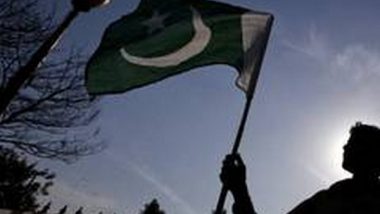Islamabad [Pakistan], October 12 (ANI): The International Monetary Fund (IMF) has emphasised the urgent need for policy reforms in Pakistan, highlighting that the country has not kept pace with its regional peers in living standards, according to a report by The News International.
The report states that, in recent decades, Pakistan has lagged in income per capita, competitiveness and export performance. Between 2000 and 2022, the country's GDP per capita grew at an average annual rate of just 1.9 per cent.
After reviewing a decade of its sponsored programs in Pakistan, the IMF acknowledged the persistent underlying challenges and recommended a greater sense of ownership as a crucial takeaway from its findings.
The IMF assessed Pakistan's performance over the past decade, during which the country utilised three upper credit tranche arrangements and one Rapid Financing Instrument amid challenging external conditions, including the COVID-19 pandemic and floods.
Although initial progress was made under these programs, they were not sustainable, leading to renewed imbalances and the necessity for successor programs.
According to reports, Pakistan will impose a 5 per cent excise duty on fertilisers and pesticides in the 2025-26 budget and amend the Civil Servants Act by February 2025 to enhance the anti-corruption framework.
The government aims for net-zero circular debt flow in FY25 through timely tariff increases and targeted reforms. The IMF report underscores that Pakistan's ability to repay its debts is highly contingent on the successful implementation of these reforms and the timely provision of external financing.
The recommendations point towards a broader need for structural reforms that address the underlying issues within the economy.
While the IMF's findings highlight the pressing need for change, they also serve as a roadmap for Pakistan to regain economic stability and improve its standing among regional peers.
The upcoming measures will be critical in shaping the country's economic future, and their success will largely depend on the government's commitment to enforcing these reforms effectively. (ANI)
(This is an unedited and auto-generated story from Syndicated News feed, LatestLY Staff may not have modified or edited the content body)













 Quickly
Quickly

















